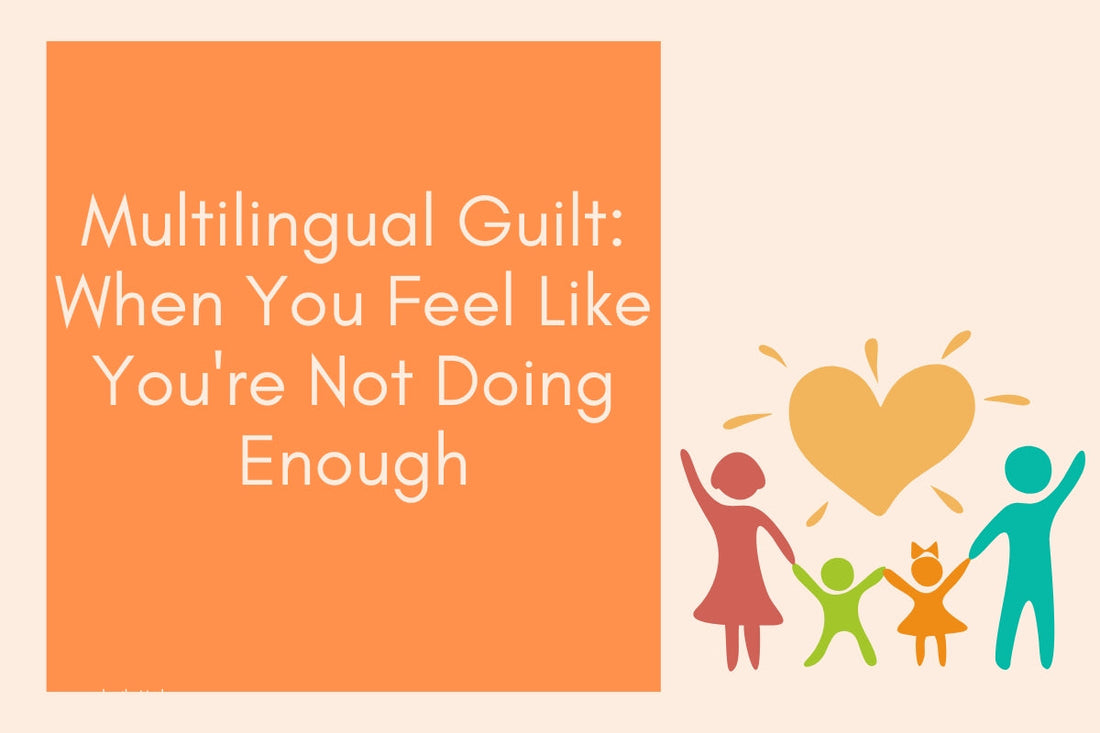By Polyglot Tales – Your Children’s Language Books Store in Australia
You bought the books. You downloaded the apps. You even tried to speak only in your home language at breakfast. And yet, you still feel it—that gnawing guilt that whispers: “I’m not doing enough.”
If you're a bilingual or multilingual parent raising a child in Australia, you’re not alone. At Polyglot Tales, we hear this from families all the time. Parents want to give their children the gift of language—and the culture, identity, and connection that comes with it—but life gets in the way. Schedules get packed, English dominates the outside world, and that one-on-one language time you planned? Gone with the laundry.
This is what we call multilingual guilt—the emotional weight of feeling like you’re falling short in passing on your heritage language.
The Real Root of the Guilt
Multilingual guilt doesn’t come from laziness or lack of love. It comes from care. It comes from wanting to raise confident, connected children who can greet their grandparents in their mother tongue, understand cultural jokes, or read books in more than one language.
But here's the truth: guilt isn’t helpful. Awareness is. Guilt paralyzes, but awareness empowers.
You Are Doing More Than You Think
-
You’re creating a home where your child hears more than one language.
-
You celebrate festivals, cook traditional meals, or sing lullabies in your language.
-
You pause to explain what something means instead of switching to English for ease.
All of these things count.
Perfection Isn’t the Goal—Connection Is
It’s tempting to aim for the ideal: balanced bilingualism, full fluency. But in real-life multilingual households, language is messy. It weaves in and out, gets stronger in some seasons and softer in others. And that’s okay.
What matters most is your child’s emotional connection to the language and to you. A child who loves hearing stories in their home language will be far more motivated to keep learning than one who sees it as pressure.
Small, Consistent Steps Make a Big Difference
Here are a few doable ways to ease the guilt and reclaim your confidence:
-
Set micro-goals: A bedtime story in your language once a week is a win.
-
Create routines: A Saturday morning “language breakfast” or “heritage movie night” can build consistency.
-
Use books: Stories are one of the most powerful tools to develop language and cultural pride. At Polyglot Tales, we specially curate engaging picture books in Hindi, Japanese, Italian, Simplified and Traditional Chinese to support bilingual families across Australia.
-
Get support: Connect with other multilingual parents. You are not doing this alone.
You’re Planting Seeds
Language learning isn't a straight path. It’s a garden—you water it when you can, and sometimes, others help it grow. School might not reinforce your child’s home language, but a well-timed story, a visit from a grandparent, or even a favorite bilingual book can reignite it.
You are planting seeds that may bloom later in surprising, beautiful ways.
So the next time guilt creeps in, pause. Remind yourself: you’re doing this out of love. It’s not about doing everything. It’s about doing something—and doing it with intention.
At Polyglot Tales, we’re more than a children’s language books store in Australia—we’re a community of families on a multilingual journey. Whether you're just starting or finding your rhythm, we’re here to help you reconnect, reset, and reignite your bilingual goals—one page at a time.

